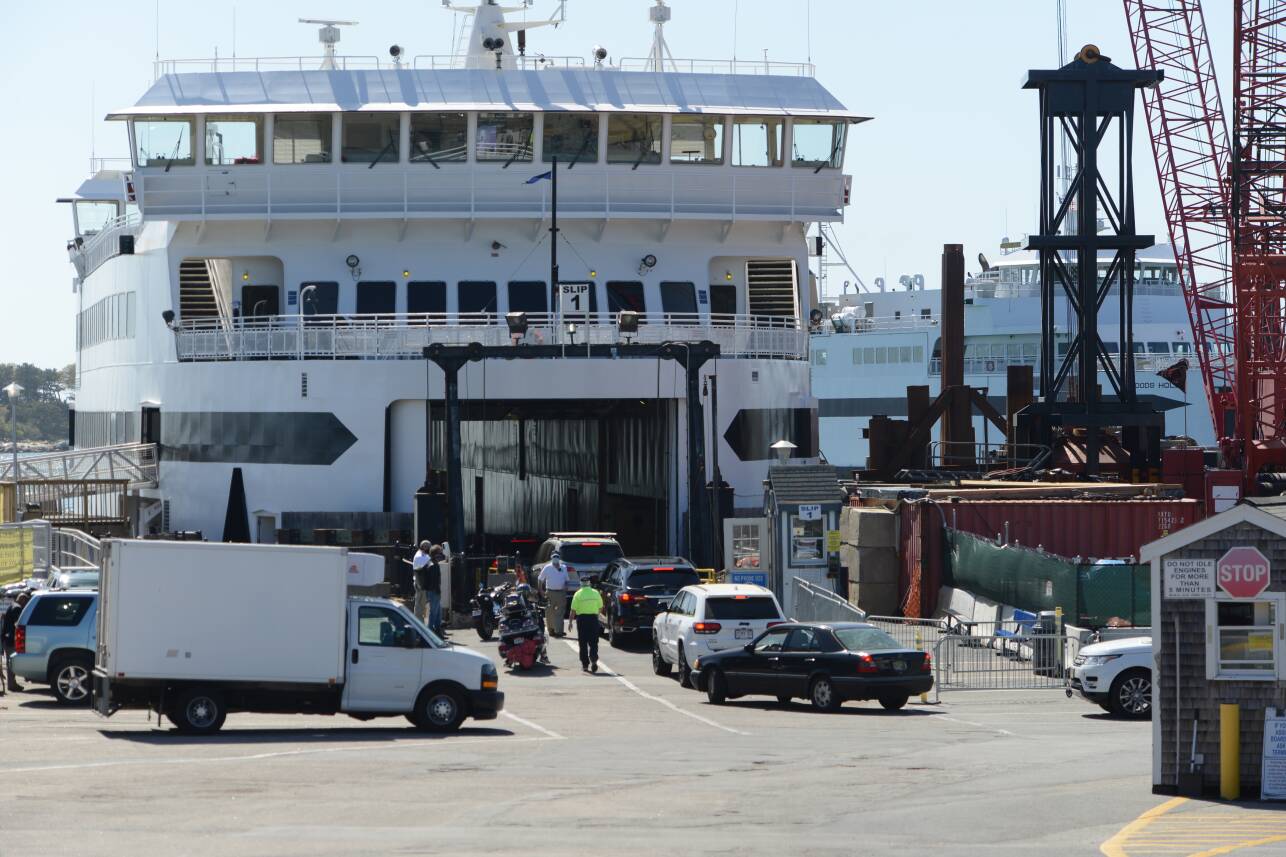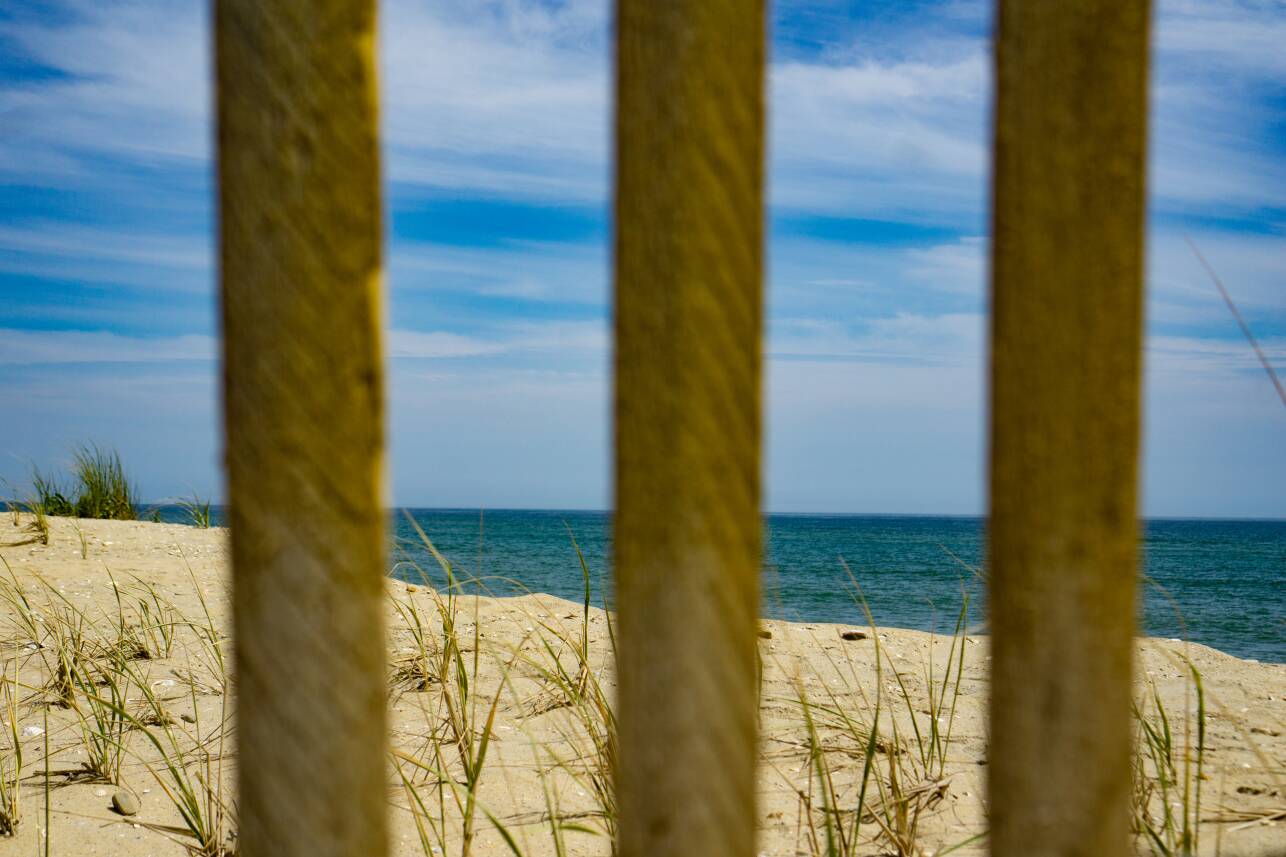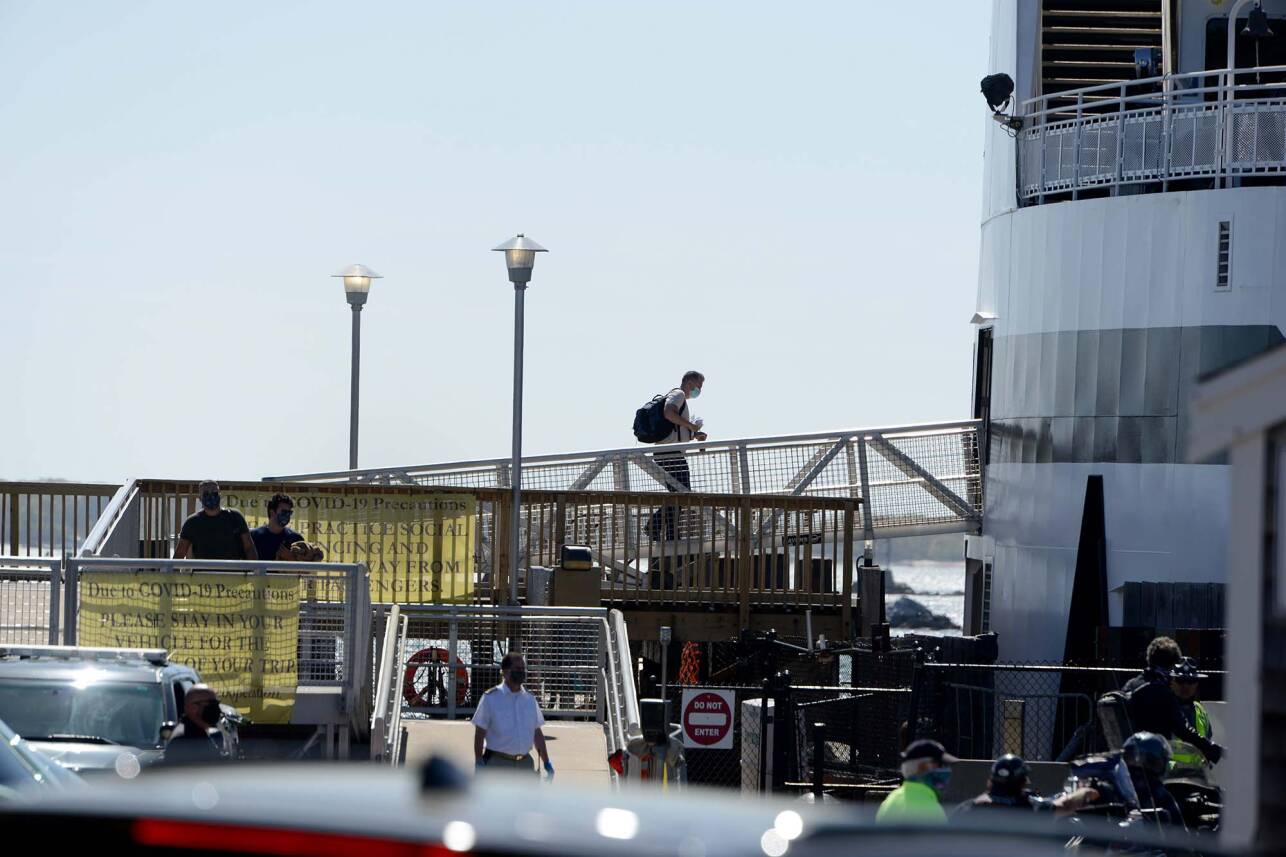With its long beaches, gleaming white lighthouses and gingerbread cottages, Martha’s Vineyard projects an image of a place immune from the problems of the outside world. Similarly, on the historic whaling island of Nantucket, gray shingled buildings and Instagram-famous hydrangeas conjure a storybook scene.
Ironically, this perception of safety has created the perfect setting for a public health calamity: Health experts say the islands are dangerously vulnerable to outbreaks of disease like measles.
There’s “a false sense of protectiveness” on the island because of its geographical isolation, said Janice Brown, a retired school nurse on Martha’s Vineyard.
Dukes County, where the Vineyard is located, had the state’s highest rate of vaccine exemptions for kindergarteners every year for the past decade, according to data from the Massachusetts Department of Public Health. In that timeframe, vaccination rates for measles, mumps and rubella ranged from 92-96%.
Nantucket County regularly has one of state’s lowest rates of MMR vaccination. The county reported an MMR vaccination rate of 91% for kindergarteners in the 2024-25 school year, according to DPH.
Yet for herd immunity to prevent a measles outbreak, infectious disease experts say a community’s vaccination rate needs to be at least 95%.
Nationally, measles — which was considered eliminated from the United States in the year 2000 — is making a comeback. This year, the Centers for Disease Control and Prevention has reported 1,544 confirmed measles cases and 42 outbreaks, more than double the outbreaks in 2024.
So far, neither Martha’s Vineyard nor Nantucket has seen a single case. Yet public health experts are concerned, given the islands’ vaccine rates and the hundreds of thousands of visitors who come from all corners of the globe.
Low vaccine rates, high tourism
In Chilmark Elementary School on the southwest side of the Martha’s Vineyard, only 82% of kindergartners over the past three years had received both doses of the MMR vaccination, according to data provided by the DPH.
A school principal confirmed that figure, adding that a few of the students were on delayed vaccination schedules or fell behind in the pandemic — and that the same dataset of children, now a few years older, stands at 90% vaccinated against measles, mumps and rubella.

Even before the COVID-19 pandemic prompted vaccination delays, though, the fear of a measles outbreak kept Lea Hamner up at night. The epidemiologist for Dukes County and Barnstable County on Cape Cod is now monitoring the spread of measles in other parts of the U.S. — and worries that this idyllic corner of the commonwealth is at risk.
“Based on how vaccination rates are going, I expect to face a measles outbreak,” she said.
Hamner and other experts point to the Vineyard’s vulnerability as a tourist destination, visited by hundreds of thousands of people each year.
“There are people who get infected in airports … at bus stations. Measles can linger in the air for two hours after that infected person leaves. That is a huge risk,” Hamner said.
And islanders themselves don’t just stay put.
“A lot of us on Martha’s Vineyard go off island. I’m concerned about our unvaccinated or under-vaccinated community members when they go on vacation,” Hamner added. “Think of measles as the worst souvenir to bring home.”
Combating vaccine skepticism
Outbreaks are impossible to predict with certainty, and state data show Dukes County’s kindergarten MMR rates have fluctuated slightly over the years. But Sonya Stevens, a pediatrician on the island, said she’s noticed an increase in skepticism during her 11 years practicing on the island.

“We definitely have experienced a rise in vaccine hesitancy,” she said, blaming the pandemic and the rise of vaccine skepticism on social media.
While Massachusetts schools require kids to be vaccinated against measles and several other diseases, the state still allows parents to claim a religious or medical exemption.
GBH News reached out to several parents who don’t trust vaccines, but none agreed to an interview.
Matthew Motta, an expert in health policy and vaccine attitudes at the Boston University School of Public Health, said the pandemic led to sharper politicization of vaccines.
One trend, Motta said, comes from the Make America Healthy Again movement endorsed by Robert F. Kennedy Jr., the U.S. Health and Human Services secretary who has loosened federal vaccine regulation. The MAHA movement also emphasizes chemical-free, organic foods.
“That’s pretty expensive … a lifestyle that not everybody can afford to live,” said Motta. “Martha’s Vineyard falls into that category, where people may have comparatively more means. That’s one potential reason why we see anti-vaccine views and anti-vaccine behavior overrepresented in Dukes County.”
Stevens said it’s not uncommon for islander parents to adhere strongly to naturalist beliefs — a regimen that may avoid man-made vaccines.

“If [people] feel like they live a healthy lifestyle in nature and eat organic food and are as chemical-free as feasible, it may be a healthier lifestyle,” she said. “It doesn’t necessarily give you any protection against infectious diseases, but I do think it gives people this halo of feeling less vulnerable.”
Girding for an outbreak
Public health leaders are tasked with a two-pronged job: trying to prevent a measles outbreak while preparing for such a catastrophe to happen.
David Caron, a vice president at Martha’s Vineyard Hospital, heads up the Island’s Vaccine Task Force, which is creating a social media campaign with well-known islanders as spokespeople. And it appears to be working.
Over the last decade, childhood vaccination rates on the island have risen and exemption rates have fallen, according to tracking by the state public health agency. In the 2015-16 school year, 93% of Vineyard kindergartners were vaccinated against measles, compared to just over 95% last year. And exemptions in the same time period fell from a peak of 12% to 4.2% last year.
“We can be a little proud in saying that maybe some of our messaging has come across,” Caron said.
Janice Brown, the retired nurse, said the improving rates are related to a shifting demographic; more children of Brazilian immigrants have enrolled in schools, especially in the bigger towns of Edgartown, Oak Bluffs and Tisbury.
“You’re seeing an increase in vaccines because you’re seeing 40 to 50% of the down-island schools are Brazilian now, and they’re vaccinated,” Brown said.
A recent rumor that federal immigration officers were on the island appears to have had an immediate impact in the doctor’s office.
“We had many canceled or no-show appointments,” said Stevens. “We have a large population of Brazilian families. The current climate on the Vineyard, and in general, make them fearful of coming to appointments, and that can create another barrier to them completing their series. That has been a very palpable change.”
"If measles gets into these tight-knit, under-vaccinated communities, it’s explosive. It might be an after-school program, social circles and potlucks."Lea Hamner, epidemiologist in Dukes County
Why measles is of particular concern
Hamner finds little comfort in the increased kindergarten vaccination rate because of the contagious nature of measles.
“If measles gets into these tight-knit, under-vaccinated communities, it’s explosive. It might be an after-school program, social circles and potlucks,” she said. “And those people, when they get together and measles enters the room, it’s devastating. Nine out of 10 nearly guaranteed to get measles if you have no immunity and you’re exposed.”
Hamner and other public health leaders said most people are too young to remember a world before measles vaccines had essentially eliminated the disease. An outbreak requires a 21-day quarantine, forcing kids to miss school and parents to stop working or even go grocery shopping.
“That’s a very long time … because that’s how long measles takes to potentially show symptoms. To prevent further spread, people need to stay home for 21 days. And that is a huge cost to not vaccinating,” added Hamner.
Christina Hermos, chief of pediatric infectious disease at UMass Children’s Medical Center, agreed that if a measles outbreak hits the state, it will happen in a place like the Vineyard or in western Massachusetts, where multiple counties also show lower vaccine rates for school children.
“There are certainly pockets where the rates are dangerously low,” she said. “We will see measles likely in those areas first.”



